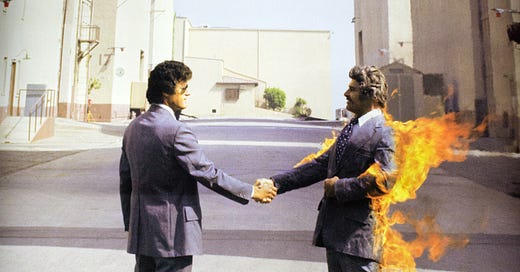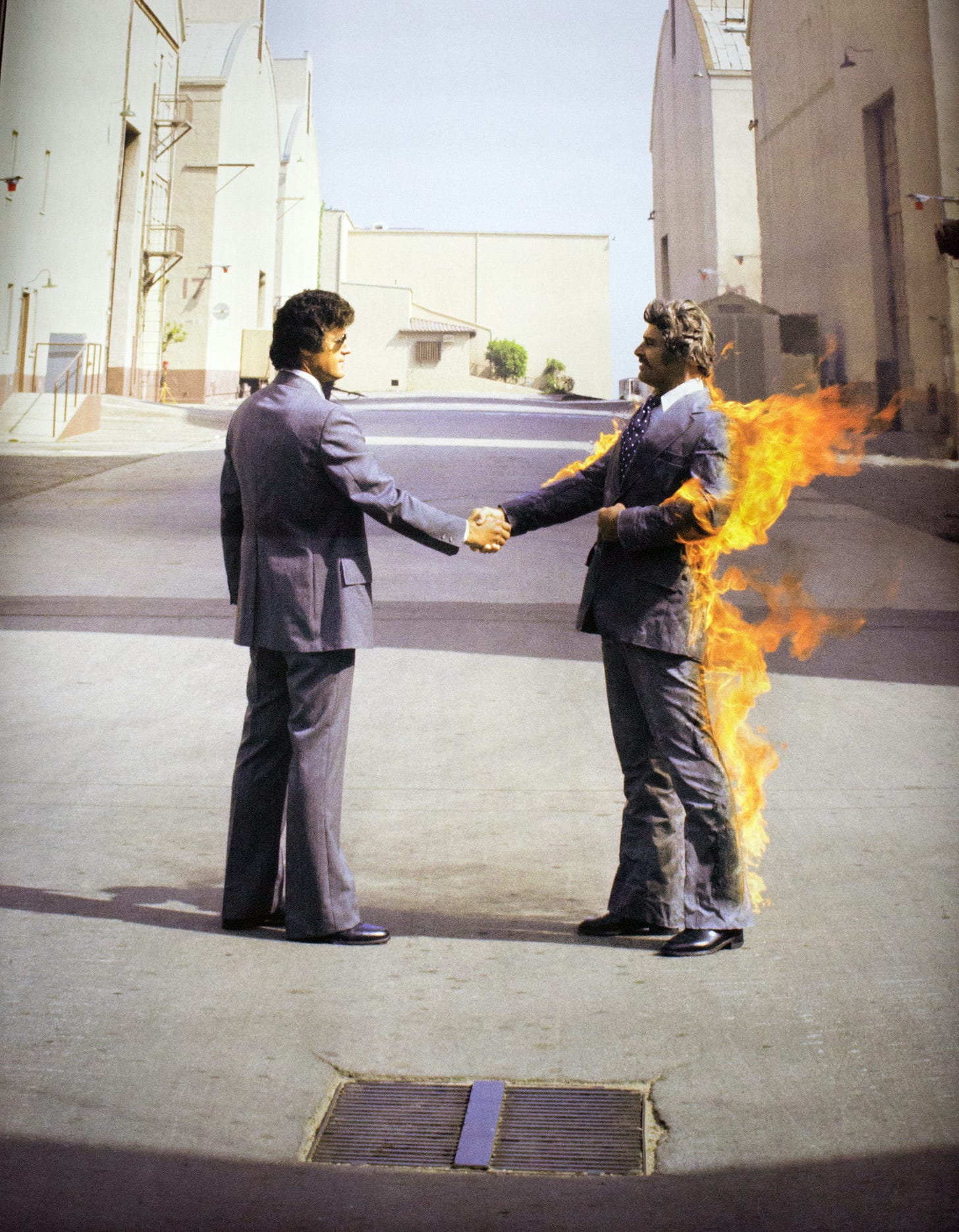So you think you can tell?
A tale of infuriating statements, cultural boycotts, and an old song that won’t get out of my heart | Non-Fiction | Fresh Soup
One evening, exactly thirty-nine years ago, a few weeks before my eighteenth birthday and four months before my conscription to the Israeli army, I sat on the beach with Uzi and Oren, my two best friends, trying to come up with a good song for our funerals. All three of us had medical issues that meant we wouldn’t be sent to combat or have to risk our lives, but still, we felt that the happier phase of our life was coming to an end and it wouldn’t hurt to arrive at the next phase – which would soon begin in the induction center – equipped with the right funeral song. I don’t remember which of us came up with “Wish You Were Here,” but from the moment it was suggested, we all got the song stuck in our minds and couldn’t think of any other option.
Less than two years after that evening on the beach, Uzi and I attended Oren’s military funeral. He hadn’t died on the front, not even close. But that didn’t prevent a line of pimply boys in uniform whom none of us knew from firing volleys at his gravesite. Before the funeral, Uzi and I had talked about the song and our three-way agreement, but neither of us had the courage to bring it up with Oren’s devastated parents.
I spent the entire funeral singing “Wish You Were Here” to myself. To this day, when I think about Oren, that song comes into my mind and captures something of the person I was at eighteen, something about missing an era that will never return, something about losing a friend.
I thought about that song and its lyrics again this morning. Roger Waters, the lead singer of Pink Floyd, had just given an interview in which he denied the October 7 massacre of Israelis by Hamas terrorists. In light of his denial, the chair of the Israeli women’s organization Na’amat asked all Israeli radio stations to stop playing Waters’ songs.
“So you think you can tell heaven from hell? Blue skies from pain?” sings Waters along with fellow soloist David Gilmour. “How I wish, how I wish you were here. We’re just two lost souls swimming in a fishbowl, year after year, running over the same old ground, what have we found? The same old fears. Wish you were here.”
When I teach creative writing, I always tell my students that a good story, by definition, has to be smarter than the person who wrote it. Because if it’s less smart, that means the writer wasn’t writing a story but assembling a piece of Ikea furniture. Most of the masterpieces I’ve encountered were smarter than their creators, and often more decent and purely good than them, too. We have plenty of songs, stories and films made by patently insufferable people, yet they make us feel and understand ourselves better. Should we relinquish all those works of art, simply because the person who created them was also responsible for other, less humane or less smart things?
I don’t know Roger Waters, although I’m pretty sure he’s an unpleasant guy who really dislikes me and my people. But when I listen to his songs, which have been with me for decades, it’s hard for me to hear in them the moral flaw that I find in Waters himself. “Wish You Were Here” was a gift I received forty years ago. A gift that helped me put a name to the pain, confusion and remorse that accompanied me—and still do. The idea of never listening to that song again just because of one of its co-writer’s opinions strikes me as a rotten deal. I don’t know how upset Waters would be if his songs were no longer played in Israel, but I’m fairly certain that this sort of retaliatory boycott would mean that many listeners, including me, would find ourselves losing something profound and touching, something unique that has the power to remind us who we are.





“When I teach creative writing, I always tell my students that a good story, by definition, has to be smarter than the person who wrote it. Because if it’s less smart, that means the writer wasn’t writing a story but assembling a piece of Ikea furniture. Most of the masterpieces I’ve encountered were smarter than their creators, and often more decent and purely good than them, too.” - Thank you so much for this… a perpetually timely reminder
Thank you for this story. I share your belief that meaningful art transcends the human through whom it appears. The artist is distinct from their art. This doesn’t mean artists are not responsible for their creations but it is important to recognize the distinction. And people change with time. Many youthful idealists become older conservatives.